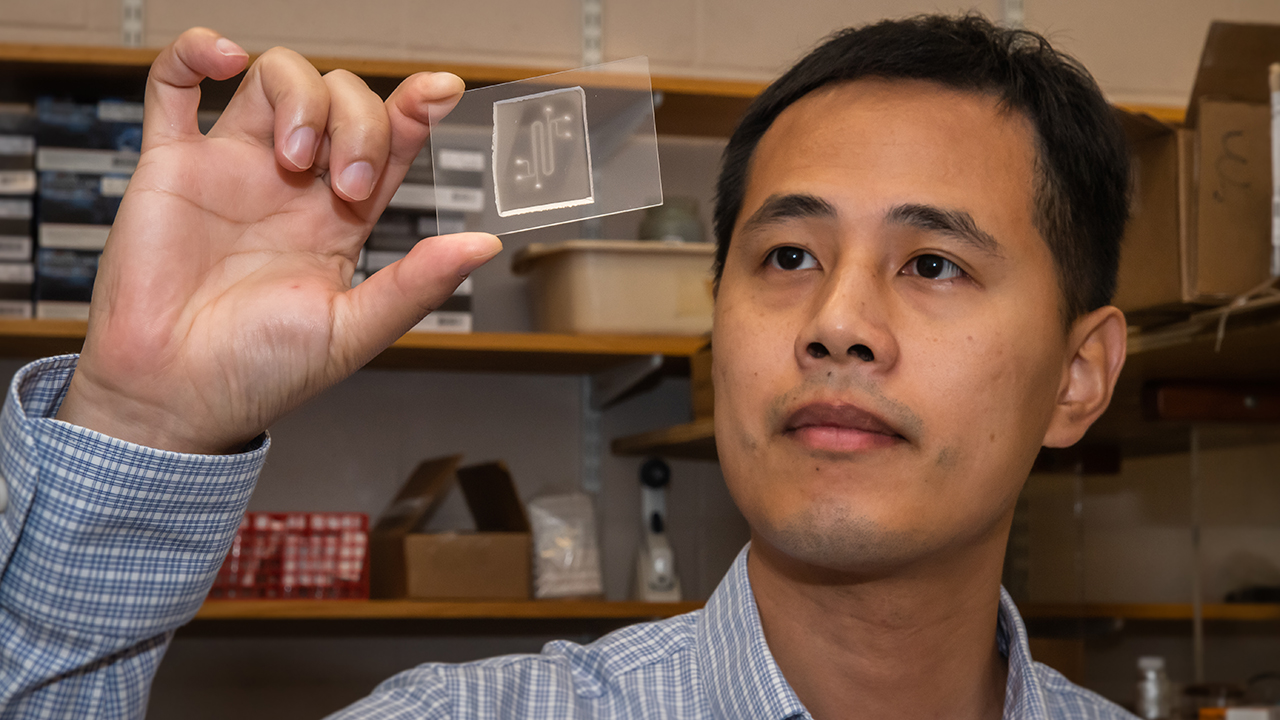Auburn researcher awarded $2.6 million NIH grant for cancer immunotherapy research
Published: Aug 18, 2020 12:00 PM
By Virginia Speirs
Pengyu Chen, assistant professor of materials engineering, was recently awarded a $2.6 million RO1 grant from the National Institutes of Health (NIH) to develop a biosensor designed to guide a novel immunotherapy for better treating cancer, specifically leukemia.
“I am very happy to see NIH continuously fund our research in the field of non-invasive point-of-care diagnosis,” Chen said. “This is a very exciting and promising field with lots of challenges and opportunities to explore.”
Chen’s biosensor is designed to evaluate the functions of an engineered T-cell with a protein called chimeric antigen receptor (CAR). The technology will enhance the visualization of the communication between CAR T-cells, immune system cells and cancer cells through real-time, direct signals produced from these cells in the tumor microenvironment.
CAR T-cell immunotherapy is one of the most recent innovative approaches for cancer treatment, however, it may have some adverse effects, according to Chen. The engineered T-cells could induce cytokine release syndrome, a rapid and strong inflammatory response that has potential life-threatening risk.
“To ensure an effective yet safe immune therapy, it is essential to understand how these engineered T-cells initiate, activate, communicate and respond in the complex cancer environment in the human body,” Chen said. “Hence, there is an emerging need for biosensing technologies that allow real-time, dynamic and direct visualization of signals produced from these engineered T-cells and their communications with other cells.”
In order to better study CAR T-cell communication signals, Chen’s team, which includes co-principal investigators from New York University and Clemson University, aims to develop a biosensing system based on a nanoplasmonic ruler, which uses gold nanoparticles conjugated by a single strand of DNA and shows potential in measuring and imaging cytokine secretion in real-time. The results from this project could help develop a safer CAR T-cell cancer therapy that could be used for personalized cancer patient treatments. This biosensor technology could also be used to better understand the mechanism of acute immune responses in severe COVID-19 patients.
“I really appreciate the tremendous support from the department, the college, Dean’s office and Auburn University that allows us to compete at the highest level in the field of nanobiotechnology,” Chen said.
Media Contact: , jdh0123@auburn.edu, 334-844-3591


